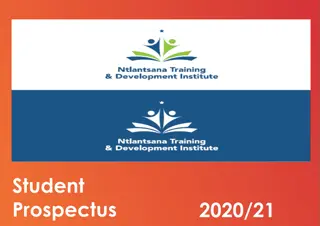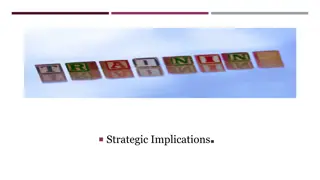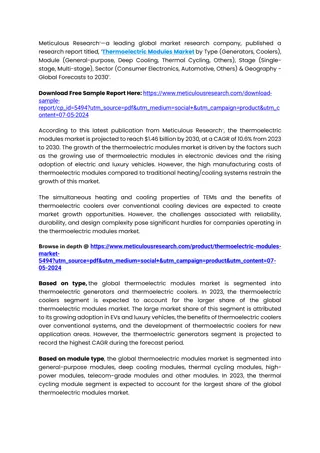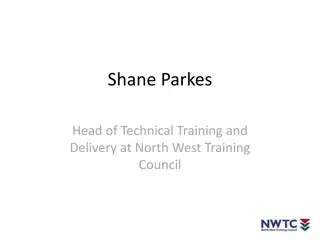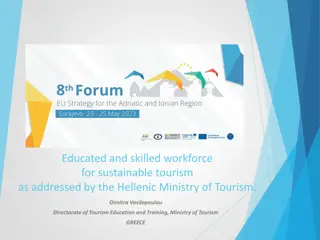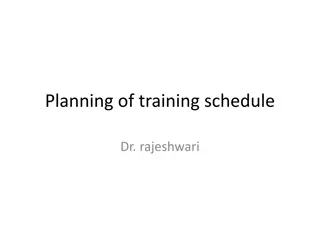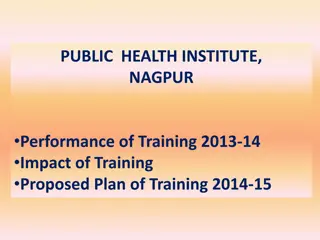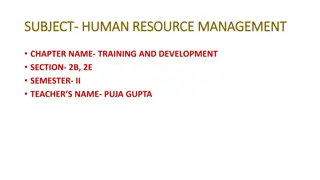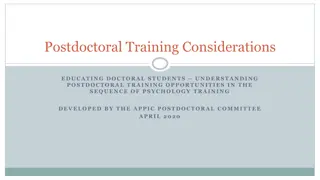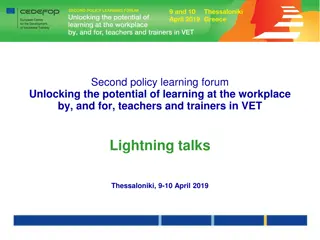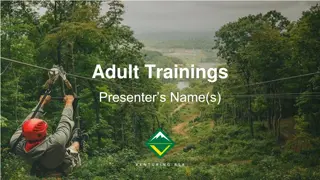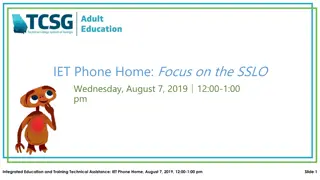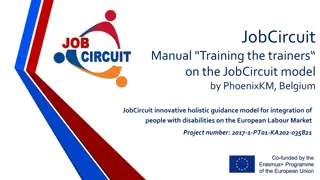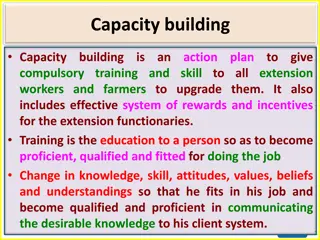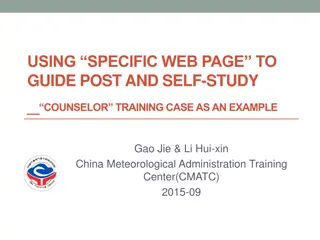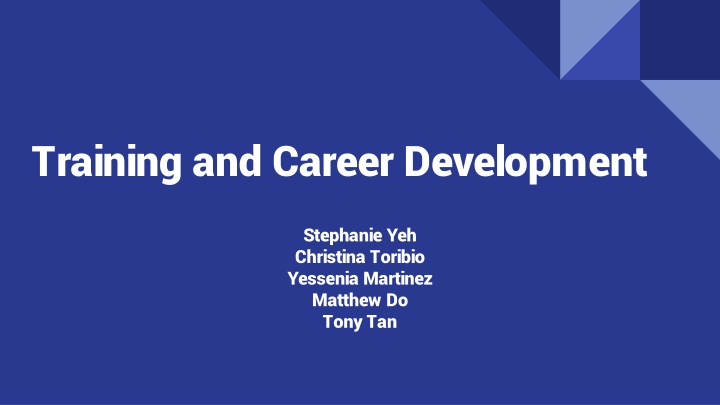
Employee Development and Career Growth Insights
Explore various research findings on employee development, career advancement, and skills enhancement presented by experts in the field like Stephanie Yeh, Christina Toribio, and Yessenia Martinez. Topics include the Employability Paradox, Emotional Intelligence, and the use of Learning and Development Opportunities for volunteer retention.
Download Presentation

Please find below an Image/Link to download the presentation.
The content on the website is provided AS IS for your information and personal use only. It may not be sold, licensed, or shared on other websites without obtaining consent from the author. If you encounter any issues during the download, it is possible that the publisher has removed the file from their server.
You are allowed to download the files provided on this website for personal or commercial use, subject to the condition that they are used lawfully. All files are the property of their respective owners.
The content on the website is provided AS IS for your information and personal use only. It may not be sold, licensed, or shared on other websites without obtaining consent from the author.
E N D
Presentation Transcript
Training and Career Development Stephanie Yeh Christina Toribio Yessenia Martinez Matthew Do Tony Tan
Employee Development and Voluntary Turnover: Testing the Employability Paradox Presented by: Stephanie Yeh
Key Terms Employee Development Employability Paradox Perceived Employability External Internal Skill Utilisation
Method two-wave longitudinal data 588 employees turnover path retention path
Take-Home Message Skills development program
No Pain, No Gain: An affect-based model of developmental job experience and the buffering effects of emotional intelligence Presenter: Christina Toribio
Key Terms Developmental Job Experience Emotional Intelligence
Method 357 full-time early career managers 478 nominated supervisors Online Affect Survey The Work Survey Mayer-Salovey-Caruso emotional intelligence test
Take-Home Message Identify high-EI individuals Training programs
Learning and development opportunities as a tool for the retention of volunteers: a motivational perspective Presented by Yessenia Martinez
Key Terms LDO s Intrinsic/Extrinsic Motivation
Method 2000 volunteers 5 non-profit organizations 628 survey responses
Take-home message Identify and assess individuals motives Develop a mentor program Focus on hands on training
Training match and mismatch as a driver of key employee behaviours Presenter: Matthew Do
Key Terms Employee training Undertraining Overtraining
Method Sample size of 3,750 Survey Manager survey reviewing employee Employee survey reviewing themselves ~20% response rate
Measures IRB (In-role behaviours) OCB (Organizational citizenship behaviours) CWB (Counterproductive workplace behaviours) 0-100 slider scale Five points from strongly disagree to strongly agree
Take-home message Find employees who want to have additional training first Follow up with employees frequently on training status Exit interviews (if any) should ask whether turnover was related to mismatch
Do Organizations Spend Wisely on Employees? Effects of Training and Development Investments on Learning and Innovation in Organizations Presented by: Tony Tan
Key Terms Innovative Climate
Method Input-Throughput-Output framework Corporate Survey Data from 260 Korean companies 1-5 Likert Scale HRM directors, Strategy directors, Employees, and Department managers T1 (2004) & T2 (2006)
Measures T1 -Coporate Training Expenditure, Financial Support for Education, Learning Practices, Innovative Climate, and Control Variables T2 -Innovative Performance
Take-Home Message Financial support for education should be carefully given to individuals whose courses are relevant to job tasks. Revise values, mission, and vision to support T&D, learning practices, and an innovative climate. Coaching and Mentoring Informal and formal social events and social intranet to encourage employee interaction. https://www.jivesoftware.com
Group Take-Home Message - Align the firm-specific business strategy with T&D interventions. - Perform a needs analysis to determine when, what, who, and why. - Administer an emotional intelligence test. - Facilitate T&D with interpersonal and organizational learning practices to increase innovative performance. - Managers to follow-up on employee training program(s).

